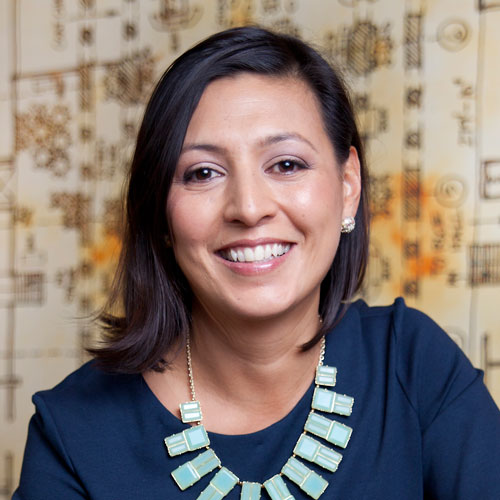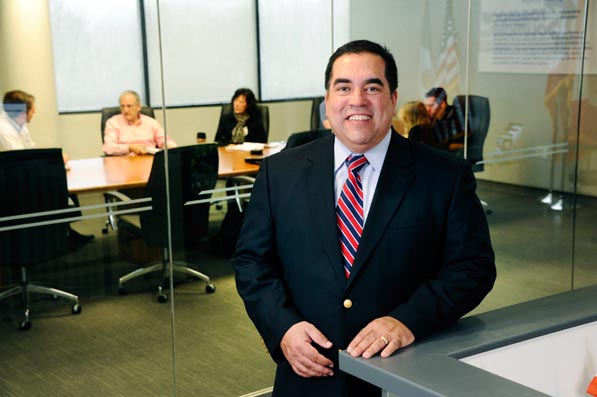General Cable’s tech maverick Jose Torres shares why power is in improvement
As the global director of information technology for General Cable’s Rest of the World division—which includes Thailand, India, Central and South America, and sub-Saharan Africa—Jose Torres is responsible for making his company competitive through IT solutions. In each location, and in the United States, he works with business teams to streamline everything from purchasing to production with efficient and consistent data aggregation systems at the division level. Here, Torres breaks down how each country poses its own demands and circumstances, and what he does to meet their specific IT needs.
Thailand
When Torres visits his colleagues in Thailand, he flies into Bangkok International Airport where everything from the security scanners to the flight-status board is powered by electricity routed by General Cable (GC) products. The Southeast Asian kingdom is also the home of two GC manufacturing plants, one of which is the largest of the company’s Rest of the World division. The high volume of products it churns out presented Torres with the challenge of accurately and efficiently tracking production, inventories, billing, and shipments—to name just a few. A recent enterprise resource planning (ERP) implementation has given the organization significantly more integrated information, which enables it to control cost, increase productivity, and become a much stronger player in the markets it serves.
India
In India, one of Torres’s main concerns is compliance. With a complicated and extensive tax code, the growing country with significant construction needs demands attention to detail and meticulous reporting. Working with his IT team, however, Torres was able to find and integrate a local solution to the company’s ERP in the commercially available software market—iTax from Udyog Software India Ltd. Because India’s economy is developing, Torres’s work includes outfitting the company in that country with the connectivity, infrastructure, equipment, and applications necessary for the business to operate. On a micro level, connecting GC’s India locations with the rest of the company via IP telephony, video, SharePoint, and e-mail is equally important to connecting them to the mainframe computer that will allow them to buy material, manufacture their products and ship them to customers all over India—features that help the business teams calculate various key performance indicators (KPIs) and monitor the branch’s productivity from thousands of miles away.
Getting to know
jose Torres
Born in Puerto Rico and a Florida resident by way of Chicago, Jose Torres broke into General Cable’s Rest of the World division when a long-time colleague recruited him. He has been instrumental at General Cable, where his efforts contributed to the nearly seamless IT transition after the company acquired Phelps Dodge International Corp. in 2007. Today, the desire to leave his mark on the world and his industry drives him, as well as his family, who make him want to excel at his work.
Brazil
When Brazil needed to power the largest soccer stadium in the world—Maracanã Stadium—or embarked on the endeavor to bring electricity to the Amazon, General Cable was a natural partner. In the 1980s, Brazil had a record of hyper-inflationary problems and the country learned that it needed to move towards electronic means for doing business faster. This trend has only increased by the government and businesses requiring more and more electronic information. With the help of local partners and his information technology team, Torres has been able to meet the challenges by providing electronic copies of invoices, getting clearance for shipping products to customers, and enhanced import and export transactions, among others. This has enabled his business team to position the company well in the local market, and it’s slated to electrically equip Rio de Janeiro for the 2016 Summer Olympics.
South Africa
General Cable’s sub-Sahara Africa region presence includes two manufacturing plants and a distribution center spread across Zambia and South Africa (in Durban and Johannesburg). Though the company would like to start leveraging economies of scale there, the roadblock of disparate transactional systems impedes this process.
Torres’s work in this region calls upon him to standardize business systems between the three locations as well as to unify the production of the two plants to optimize output and use of resources. Torres states that by bringing each location into common business processes, it allows GC to increase the visibility of data for the three branches, so they can communicate on the same terms and efficiently fulfill the orders of GC’s sub-Saharan clients. “Overall,” Torres says, “we are able to achieve significantly more by delivering common solutions to the businesses we support.”
United States
At GC’s headquarters in Miami, Torres’s work takes on a macro perspective.
The question he must always pose to himself is, “Though transaction systems operate very well locally, how do you aggregate their data so the vice presidents sitting at HQ can use it to make decisions?” Five years ago, GC ventured into business intelligence, and Torres says that has given the company the ability to standardize and streamline data throughout the supply chain but, most importantly, has given the visibility of what GC is buying, whom it is buying materials from, and at what prices. This information is invaluable as GC gets into major negotiations with key vendors around the globe. The team at headquarters is able to operate very effectively by having deployed close to 2,100 IP phones globally and 35 video meeting rooms all interconnected. “We have seen that our collaboration and effectivity in communication among ourselves has been enhanced significantly by using these technologies,” Torres says. “This has also translated into saving the company approximately $650,000 per year on travel and long-distance phone calls.” It’s a continuous process of improvement, but Torres explains that as GC continues to grow, so too will the savings and progress.

